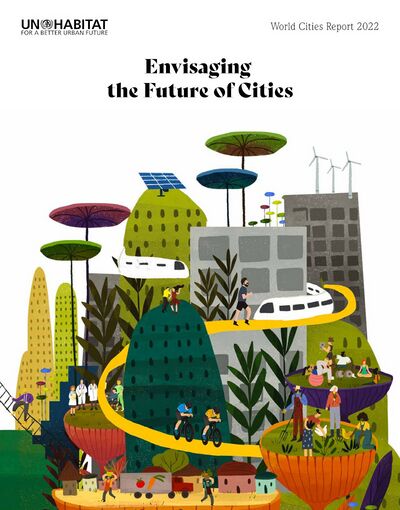United Nations: Difference between revisions
No edit summary |
No edit summary |
||
| Line 37: | Line 37: | ||
{| | {| | ||
|[[File:UNDay1Part1.jpeg|link=https://webtv.un.org/en/asset/k1m/k1ma4k9rff|Day 1 Part 1]] | |style="width:400px;"|[[File:UNDay1Part1.jpeg|link=https://webtv.un.org/en/asset/k1m/k1ma4k9rff|Day 1 Part 1]] | ||
| | | | ||
{| | {| | ||
| Line 68: | Line 68: | ||
{| | {| | ||
|[[File:UNDay1Part2.jpg|link=https://webtv.un.org/en/asset/k1u/k1uvv0xd6d|Day 1 Part 2]] | |style="width:400px;"|[[File:UNDay1Part2.jpg|link=https://webtv.un.org/en/asset/k1u/k1uvv0xd6d|Day 1 Part 2]] | ||
| | | | ||
{| | {| | ||
| Line 75: | Line 75: | ||
| | | | ||
|- | |- | ||
| | |13:30 – 15:00 | ||
| | |Open Source at the UN | ||
|- | |||
| | |||
|Keynote: Tawfik Jelassi | |||
|- | |- | ||
| | | | ||
| | |Panel: Lucy Harris, Omar Mohsine, Robert Opp, Sameer Chauhan, Sunita Grote, Vincent Martin | ||
|- | |- | ||
| | |15:00 – 16:00 | ||
| | |Reboot the Earth | ||
|- | |- | ||
| | |16:00 – 17:30 | ||
| | |Open Source and Governments | ||
|- | |- | ||
| | | | ||
| | |Keynote: Pearse O’Donohue | ||
|- | |- | ||
| | | | ||
|Panel: | |Panel: Aeva Black, Bastien Guerry, H.E. Bayissa Badada, Juliano Seabra, Markus Richter, Sarah Espaldon | ||
|} | |} | ||
|} | |} | ||
{| | {| | ||
|[[File:UNDay2Part1.jpg|link=https://webtv.un.org/en/asset/k1q/k1qmxhno3c|Day 2 Part 1]] | |style="width:400px;"|[[File:UNDay2Part1.jpg|link=https://webtv.un.org/en/asset/k1q/k1qmxhno3c|Day 2 Part 1]] | ||
| | | | ||
{| | {| | ||
| Line 106: | Line 106: | ||
| | | | ||
|- | |- | ||
|09:30 – | |09:30 – 11:00 | ||
| | |Open Source at Work in the World | ||
|- | |- | ||
| | | | ||
| | |Keynote: Adriana Groh, Andreas Reckert-Lodde | ||
|- | |- | ||
| | | | ||
|Panel: Anir Chowdhury, David Nalley, Demetris Cheatham, Mike Milinkovich, Sophia Vargas | |||
|-style="vertical-align:top;" | |||
|11:00 – 12:00 | |||
|Panel: | |Devrooms: Open Source at Work in the World | ||
|- | *Open Science and Research | ||
|11: | *Open Source Education and Skills | ||
|Open Source in the | *Open Source for Climate and Health | ||
|} | |} | ||
|} | |} | ||
{| | {| | ||
|[[File:UNDay2Part2.jpg|link=https://webtv.un.org/en/asset/k15/k1517v486n|Day 2 Part 2]] | |style="width:400px;"|[[File:UNDay2Part2.jpg|link=https://webtv.un.org/en/asset/k15/k1517v486n|Day 2 Part 2]] | ||
| | | | ||
{| | {| | ||
| Line 137: | Line 131: | ||
| | | | ||
|- | |- | ||
| | |13:00 – 14:00 | ||
| | |Spotlight Panel: Youth and Open Source | ||
|- | |||
|14:00 – 15:30 | |||
|Open Source Networked Cities | |||
|- | |- | ||
| | | | ||
| | |Panel: Dirk Schrödter, Gesa Ziemer, Jacob Green, Lindsay J Thompson, Mark Anthony Thomas, Richard Gevers, Viraj Tiyagi | ||
|- | |- | ||
| | |15:30 – 16:30 | ||
|Open Source | |Engaging the Open Source Community | ||
|- | |- | ||
| | | | ||
|Panel: | |Panel: Arun Gupta, Hillary Carter, Omkhar Arasaratnam, Sachiko Muto, Tajh Taylor | ||
|- | |- | ||
| | |16:30 – 17:00 | ||
|Open Source | |Closing Plenary: The Next Decade: Envisioning the Future of Open Source | ||
|} | |} | ||
|} | |} | ||
Latest revision as of 17:00, July 13, 2024
- Members
To maintain international peace and security, develop friendly relations among nations, achieve international cooperation, and serve as a centre for harmonizing the actions of nations.
Details
The United Nations (UN) is the world's largest international organization. The UN is headquartered in New York City, in international territory with certain privileges extraterritorial to the United States, and the UN has other offices in Geneva, Nairobi, Vienna, and The Hague, where the International Court of Justice is headquartered at the Peace Palace.
Cities
The United Nations Human Settlements Programme (UN-Habitat) is mandated by the UN General Assembly to promote socially and environmentally sustainable towns and cities. UN-Habitat is the focal point for all urbanization and human settlement matters within the UN system.
UN-Habitat works with partners to build inclusive, safe, resilient and sustainable cities and communities. UN-Habitat promotes urbanization as a positive transformative force for people and communities, reducing inequality, discrimination and poverty.
in 2022 UN-Habitat published a cities report "Envisaging the Future of Cities"
Open Source
In July 2024 the UN hosted the "OSPOs for Good 2024" conference. This event provided a rich global presence of diverse open source thinkers, with bigger ambitions and strides for championing OSPOs as a global network for good.
By building on the success of the first OSPOs for Good event in 2023 the 2024 event, the goal of the 2024 conference delivered high-level thematic tracks that addressed key areas of open source policy, as well as highlighting emerging examples of ‘open source for good’ from across the globe. It prominently highlighted the theme of ‘open source networks as enablers of global cooperation’.
This conference expanded the scope of last year's event to focus on how the conversation around OSPOs is enabling new forms of global cooperation around open source for good in countries. The two days were recorded and these recordings are here:
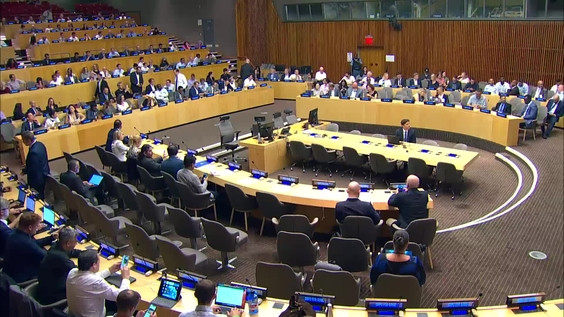
|
|
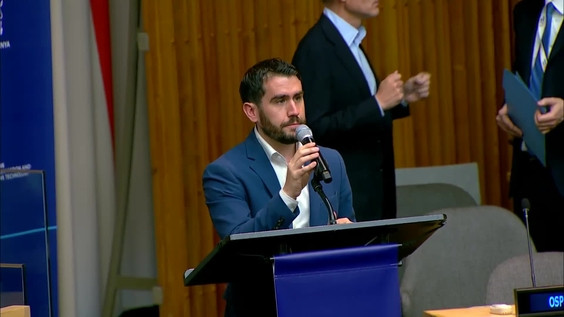
|
|
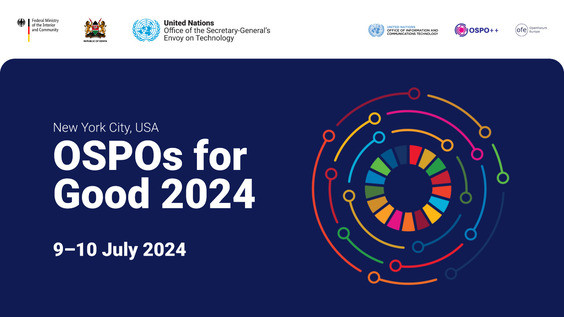
|
|
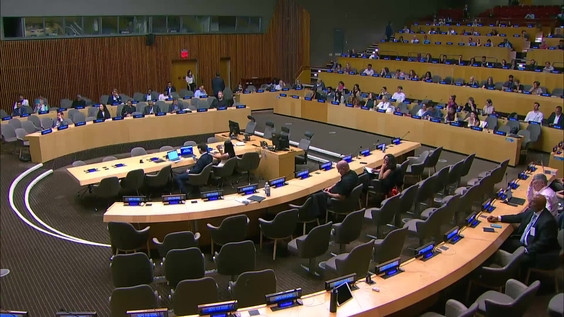
|
|

